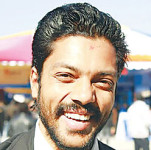
We use Google Cloud Translation Services. Google requires we provide the following disclaimer relating to use of this service:
This service may contain translations powered by Google. Google disclaims all warranties related to the translations, expressed or implied, including any warranties of accuracy, reliability, and any implied warranties of merchantability, fitness for a particular purpose, and noninfringement.

Highlights
- Ganeshman's last battle was no less than a crusade. In particular, that fight was aimed at establishing the supremacy of morality in politics. It was not a good thing to warn one's own party, to dare to rebel after the party ignored the warning.



Nepalese politics took a big turn in the years 2007, 2046, 2062/63. Ganeshman Singh was at the center of revolution and movement in 2007 and 2046. 2062/63 Ganeshman could not see, but it can be confidently said that the problems of democracy that Ganeshman saw are still there today.

As Ganeshman's 28th Memorial Day is being celebrated, the last battle of his life has become more relevant than his bravery and sacrifice. Ganeshman achieved rare political heights without becoming the Congress party president and without becoming the prime minister of the country. This article will focus more on his final battle 2048–054.
Born in an elite family of Kathmandu, Ganeshman Badakaji grew up as the grandson of Ratnaman. Getting expelled from Durbar High School turned out to be a boon for him in time. He escaped from Kathmandu and reached Calcutta. Grandfather wanted - no matter what he did while in Kathmandu, his grandson should do something good when he reached Calcutta, study. Needless to say, Ganeshman has proudly returned to Kathmandu after passing matriculation in the first class from Calcutta's Vidya Chandra School 'in the pages of my story'.
The purpose of his life became more focused on the Khilap of Rana Shahi than on education or employment. After meeting with Gangalal Shrestha, Rana went looking for Praja Parishad, an underground organization that was opened to overthrow Rana Shahi. Ganeshman's last words when parting with Gangalal - 'Ganeshaman, don't forget my blood' - always titled it. His last fight was aimed at the blood of those martyrs and the dream of martyrdom.
Ganeshman was jailed in 1997 in Praja Parishad scandal. The incident of breaking the jail and escaping became a living legend for the closed society of Kathmandu. The meeting with BP Koirala turned out to be decisive for him, who lived a semi-underground life by changing his name in many cities via Banaras, Calcutta, Darjeeling. BP became not only his friend but also his leader. Ganeshman walked in unison with the political line of BP for four decades. Although the party always expressed its opinion before making any decision, the final decision was taken by BP.
2007 On February 7 in Kathmandu, slogans of Zindavad were raised in the name of three people besides democracy Zindavad - Raja Tribhuvan, BP and Ganeshman. Ganeshman came to Kathmandu as a minister of the interim government, turning into a revolution hero, completely different from many identities, from being a hooligan, a fugitive. Now there was a radical change not only in Ganeshman's life but also in the life of Nepal including Kathmandu. He became a user of the revolution. But the special battle of his life has just begun.
Ganeshman, who competed for the post of chairman in the sixth convention of the Congress in 2012, was defeated by Suvarna Shamsher. In the first general election in 2015, he defeated Pushpalal Shrestha, the founder of the Communist Party of Nepal, and was elected as an MP from Kathmandu. Ganeshman gave a different statement about the second violent struggle by the Congress against the Panchayat. BP took moral responsibility but Ganeshman refused. Ganeshman's thinking was different. Although he declared that he should participate conditionally in the referendum, it did not become a party line.
Once BP's death in 2039, the test of Ganeshman's leadership began. After BP, the burden of the revolution of 2007 had now shifted on his shoulders. Ganeshman's leadership skills were first used in the Satyagraha movement of 2042. He passed the first test of leadership. The wisdom of his leadership was not formed overnight, but it was always overshadowed by the presence of BP. In the political program called by the Congress, the leaders of the communist component, Manmohan Adhikari, Sahna Pradhan and others, joined the movement after being arrested and expressed their solidarity. Ganeshman was not the party president, but the rest of the Congress leadership was confirmed to follow his line. The Communists had accepted the leadership of the Congress, on the other hand, the Left had paved the way for unity and a united people's movement.
The call for mass movement in 2046 was made from the courtyard of Ganeshman's house. In this way, Ganeshman united the Congress and started to inspire left unity. He led the United People's Movement and became the supreme commander of the movement. The success of the 2046 movement was the crowning moment of his life. He later rose to a greater and unequaled height by refusing the post of prime minister offered by the king. Ganeshman's goal in life was not going to stop there. Time and destiny were preparing him for another battle. The
came to a historic heavy stop with the elevation of the supreme commander of the movement. But feeling that the sense of responsibility given by history will not be fulfilled by shrinking only in "Guardian Angel", he took the role of active "Watch Dog" of democracy full of risks. There was no credit or love for him in that battle. He inherited the revolution of 2007 from BP in the year 2039 and had to rise up against everyone to save the spirit of the 2046 movement. Ganeshman's final battle was no less than a crusade. In particular, that fight was meant to establish the supremacy of morality in politics, it was a call in that direction. It was not a good thing to warn one's own party, to dare to revolt after the party ignored the warning. Apart from reforming the party system, economic development along with the establishment of democracy and the common share of neglected groups and classes in that development were the main mantras of his fight.
After the success of the 2046 movement, Ganeshman identified the problem and fought for it till his last breath. It was a battle of his conscience, which was for the public good, with democracy at its center and the ground man. Also there were backward, oppressed and oppressed classes, which later took the form of tribal, tribal, dalit, women etc. movements. Now the happy outcome of that fight has come to assume the shape of inclusive proportional representation in all bodies and organs of the state. As a
, he fought with Girija Prasad Koirala, fought with Kisunji and fought with the entire Congress party. He fought with the Congress so that the investment of half a century would reach a meaningful conclusion. However, in essence, he fought for more than 6 decades to change Nepal. That fight was to empower and empower the people of democracy. It took time for Congress to understand the essence of that fight and still Ganeshman's justification for that movement is not over, the opposite is becoming inevitable.
Ganeshman's last fight in front of the Congress, which was dazzled by the glare of power, became the cry of the forest during his lifetime. However, the battle fought by one of the famous warriors of the history was tainted with familyism and casteism. That was just a propaganda run by the members of the power at that time. Ganeshman's words were confirmed within a few years, i.e. in 2058. Ganeshman's public awakening campaign faded away in the heat and heat of power, it could not gain momentum, but it was not a dull thing. His allies, who supported him in the 2048-54 war, were also caught up in the power politics.
No one has ever fought that battle of Ganeshman in Nepal. Many people fought against the Rana regime, many people also fought with the Panchayat, sacrificed their lives. Ganeshman's fight was more complicated in history than Gandhi's fight with Nehru in independent India. Gandhi was lucky in this sense, he did not have to fight that unpleasant battle for too long, he was freed by the assassination of Dharmandha Nathuram Godse less than a year after independence.
The days and years from 2048 to 2054 were very difficult for Ganeshman. As painful as they were, they were also endearing. He was not about to compromise. It was a time when practical politics was swallowing the politics of principles, ideas and integrity wholeheartedly. It was a time when democratic leadership alienated and deprived itself of democratic qualities and character. Speaking from the heart, he said that for a strong democracy, it is not enough to follow the constitution alone. At that time, today's Prachanda was weaving the web of power revolution, KP Sharma Oli was making strategies within the party and Sher Bahadur Deuba, who had once become the Prime Minister, was at a loss. None of them were interested in that fight.
Today's politics has become parentless. The Republic of Nepal does not have critical guardianship like Ganeshman. If anyone had given a model and fought for the diagnosis of the problems we face today, it was Ganeshman. Anyone who is determined to make Nepal's politics more people-oriented cannot do so without learning from Ganeshman's last and longest struggle. Fighting for democracy and fighting democracy to reform democracy are two different things. This requires moral height, courage and strength. And, the required authorization. If there is anyone such role model in modern Nepal, it is Ganeshman.
BP gave a model to fight for democracy, Ganeshman showed the way how to strengthen it. Just as there is no auspicious moment of any religious activity without Shri Ganeshaya Namah in Hindu rituals, today the first day of the upliftment of the republic cannot move forward without the light of Ganeshman's final struggle. Let the republican awareness campaign be everyone's goal today.
 प्रकाशित : आश्विन २, २०८१ ०७:०२
प्रकाशित : आश्विन २, २०८१ ०७:०२

 २४.१२°C काठमाडौं
२४.१२°C काठमाडौं










